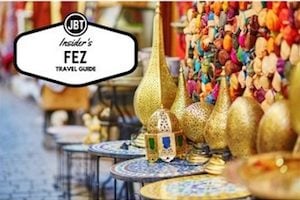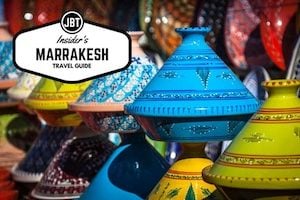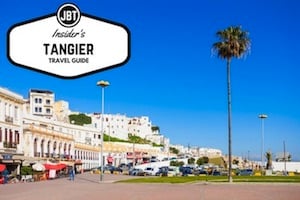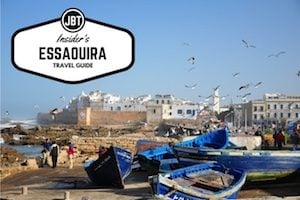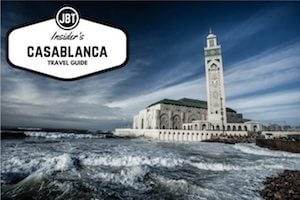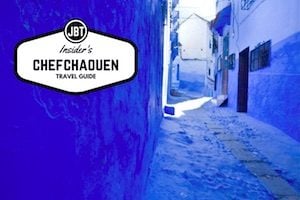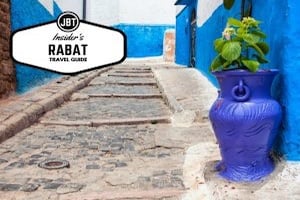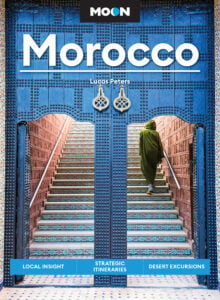The music of Morocco is as diverse and as culturally rich as its people. Styles vary from region to region and are greatly influenced by the region’s ethnic groups and cultural heritage. Depending where you visit you will hear the classical Arab-Andalusian music, the folk music of the Berber people, Gnawa and the popular music styles of Rai and Chaabi. Head to the bottom of this post for some Moroccan music you can download and enjoy at home or on your own Moroccan road trip!
Much like the languages of Morocco, Moroccan music is extremely varied and pulls from different heritages. Here is what you need to know.
Moroccan Music: The Major Genres
Andalusian music combines the haunting tonality of Arab music with the flamenco-style strumming of Spanish folk music. The style makes use of complex percussion, stringed instruments, the lute and many other instruments. Considered Morocco’s classical music, Andalusian music is sung in Arabic and is typically performed by men in traditional clothing during religious ceremonies, festivals and concerts.
The Berber people (more properly: Amazigh) are the indigenous peoples of West Africa and make up a significant portion of Morocco’s’ population. The Berber people possess their own language and have a long oral tradition of passing songs and poetry down from one generation to the next. There are three primary Berber regions in Morocco and each possesses its own unique rhythms. Berber music typically involves drums, flutes, clarinets and a rabab, a one-stringed fiddle. You can often hear Berber music performed in festivals in the mountain regions, such as the Imilchil Marriage Festival, as well as family and village celebrations.
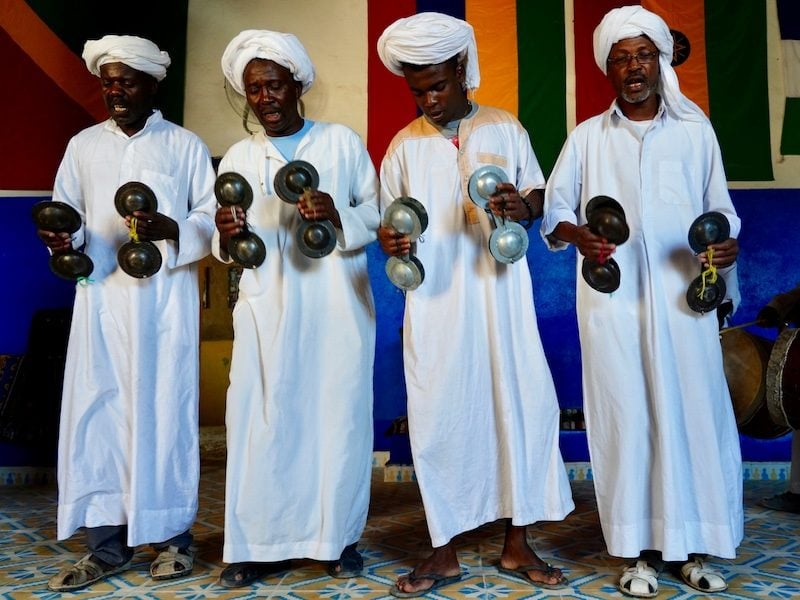
Gnawa music combines hypnotic trance rhythms with ceremonial dancing. Brought to Morocco by West Africans, Gnawa evolved from the freed slaves in Marrakesh and Essaouria as both prayer and a celebration of freedom and life. Gnawa has inspired the development of modern Moroccan music and has fused with similar styles like jazz, reggae and hip-hop. You can hear Gnawa in Marrakesh’s Jemma-el Fnaa; at the annual Gnaoua World Music festival held annually in Essaouria, the contemporary hub of Gnawa music; and in the village of Khemlia near Merzouga at Erg Chebbi in the Sahara Desert.
Rai is a form of folk music that originated in Algeria but become popular in the Moroccan cities of Oujda and Berkane during the early 1990s. Trendy with young people, the lyrics of Rai are traditionally concerned with social issues that have affected the native populations of West Africa. The music is an eclectic blend of traditional and religious drum patterns and melodies with electric instrumentation. Rai essentially sounds like popular music sung in Arabic, but it has deep cultural and religious influences.
Chaabi is considered the pop music of Morocco. It descended from Moroccan folk music and sounds similar to Rai. Since it is typically performed in Darija, Moroccan Arabic, it is one of the most widely listened to types of music in Morocco. The music features drums, lutes, stringed instruments and more recently electric guitars and buzuks. You will hear Chaabi played in taxicabs, market stalls and clubs.
How to Listen to Moroccan Music at Home
For nearly every traveller to Morocco, one of the biggest highlights is listening to live Moroccan music. From the performers jamming in Marrakesh’s famous square, Jemma el-Fnaa every night, to the Gnawa beats pulsing in the desert… one thing is for certain, Moroccan music will set beat to your time in Morocco. But what if you’re stuck at home or at the airport just waiting to board that flight to Casablanca? Though it can be difficult to find a lot of Moroccan music online, we’ve gone ahead and compiled a diverse list of what we think is the best Moroccan music you can download. This way, you can tune in at home or while in transit.

So listen up and create your own soundtrack, whether its for the plane ride over or that epic road-trip that takes you from the bustling port of Tangier all the way to the quiet of the Sahara… or maybe while you’re just lounging around the house or doing dishes.
Your Moroccan Music Playlist
Notes If you already have a monthly subscription to Amazon Music or iTunes, most of these artists are found there so you can easily use this list to make your own Morocco playlist for your upcoming trip… of just to spin around the house like the dervish you are.
Ammouri M’barek
Hailing from Taroudant, M’barek is often credited for reinvigorating the traditional music of the region. With some definitively spicy Latin-flavored guitar infused with some reggae chill, M’barek’s harmonious chanting adds to a mix that could easily see you through takeoff or maybe lounging by the pool.
iTunes: https://music.apple.com/us/album/izoujg-louz/916112607
YouTube: https://youtu.be/uEscB5-EJMY
Izanzaren
Probably the most popular band to come out of Morocco’s Souss region, over the High Atlas and south of Marrakesh. The feels are enchanting with a stress on the gimbri (a Morocco stringed instrument that is something like an acoustic guitar) and often some 70s-era flavor mixed in. The perfect sounds for a lazy drive through the mountains.
iTunes: https://itunes.apple.com/us/album/izanzaren-les-rayons-de-soleil-remastered/599739868
YouTube: https://www.youtube.com/watch?v=yrGwnAFuf00
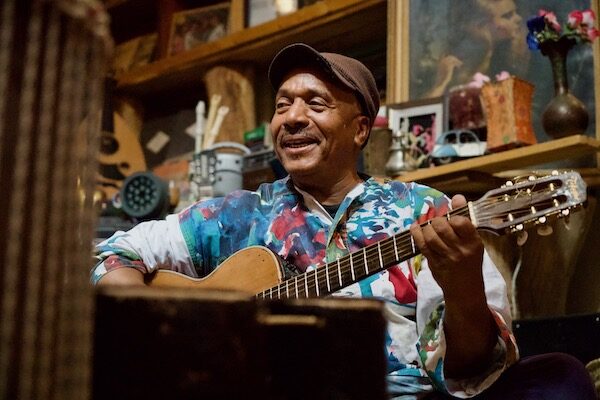
Najat Aâtabou
Perhaps the most popular music in all of Morocco is simply called “Chabbi” music (that is, “popular” music). This type of music, typically sung in Moroccan Arabic, has a lot of Western influences and deals with themes, by and large, of daily life. You’ll hear this in taxis all over the country! There are several very popular Chabbi singers, with Aâtabou being one of the most known. Her song, “Hadi Kedba Bayna,” was sampled by The Chemical Brothers.
iTunes: https://itunes.apple.com/us/album/najat-a%C3%A2tabou/979588292
YouTube: https://www.youtube.com/watch?v=P7Srkkc0iGU
Malika Zarra
Perhaps best known for her jazzy, multi-lingual album Berber Taxi, Zarra is a trained jazz musician having studied in France before moving to New York. She is perhaps at the forefront of jazzy Moroccan sounds pulling sounds from all over her home country, from the calls of the desert to the quiet strings of the mountains and the unmistakeable rhythms of Gnawa. It all makes for an intoxicating musical cocktail. This is our newest favorite Moroccan music you can download.
iTunes: https://itunes.apple.com/us/album/berber-taxi/1249057621
YouTube: https://www.youtube.com/watch?v=FPaT-ZaS1c8
Mahmoud Guinia
Considered a real master of Gnawa music, Guinia fronts a band, leading the rhythm and the chanting with his gimbri and voice. Unlike some of the other Gnawa musicians recording and playing festivals, Guinia has kept the Gnawa stress on long trance rhythms, making for songs that are often longer than what we are used to hearing, though were once the norm in some regions in Morocco. Tune in, chill out, and be enchanted by the metal castanets, the specific sound thought to have originated from the sounds of the slaves as they moved across the desert, chained together.
iTunes: https://itunes.apple.com/us/album/gnawadelica-vol-1/584694662
YouTube: https://www.youtube.com/watch?v=1t8iEH3K_Rk&list=RD1t8iEH3K_Rk&start_radio=1&t=480
The Master Musicians of Joukouka
If you’ve never encountered Sufi Trance Music, this is your chance. Sufism is still big in Morocco, though largely goes unnoticed by most travellers. Music plays a large part in Sufism with many adherents believing that it can help you reach a sort of divine state, or trance, with the aid of the right music. Interestingly, Brian Jones (yes, THAT Brian Jones of the Rolling Stones) once worked with The Master Musicians of Joukouka. For Moroccan music you can download, it maybe doesn’t get any more historically interesting.
iTunes: https://itunes.apple.com/us/album/brian-jones-presents-the-pipes-of-pan-at-jajouka/258387166
YouTube: https://www.youtube.com/watch?v=ECqzEi7Ghcs
Nass el Ghiwane
Often dubbed “The Beatles of Morocco,” Nass el Ghiwane is a veritable Moroccan institution. This super-popular group hit their peak of popularity in the 1970s, bringing an energy lots of Maghrebi beats accompanying silky smooth vocals and vibrant Moroccan-style guitars and funky bass. If you’re creating your own Moroccan Music playlist, Nass el Ghiwane is a must-add.
iTunes: https://itunes.apple.com/us/album/nass-el-ghiwane-ep/491373573
YouTube: https://www.youtube.com/watch?v=x4sJMfAnegw
Oum
Originally from M’hamid al-Rizlane, a desert town at the end of the road, Oum has grown to be an international star with her Gnawa-pop-jazz fusion, a particular sound that is all her own. Interesting, she also hosts the Taragalte Music Festival, a three-day event held at the end of October every year in her home town in the Sahara. Oum also sings in English, making her music often more approachable for those listening to Moroccan music for the first time.
iTunes: https://itunes.apple.com/us/album/soul-of-morocco/648361178
YouTube: https://www.youtube.com/watch?v=297klwcKKmI
Have you come across a favorite Moroccan musician or group? Let us know! We would love to share with our readers and listeners!
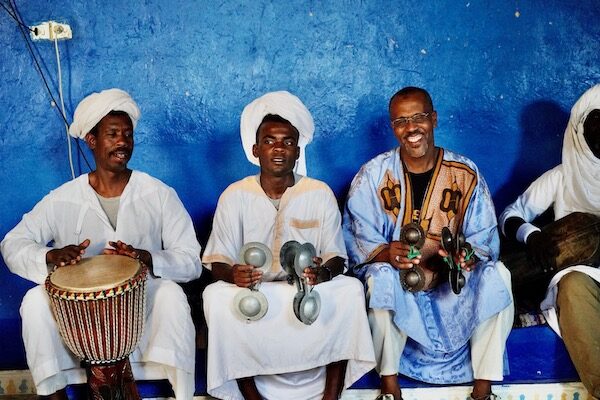
About the Author and Photographer.

Morocco expert, award-winning writer and photographer Lucas Peters curates and edits the Journey Beyond Travel blog, pens the JBT Insider’s Guide series, and is the Managing Director of Journey Beyond Travel. After spending years traveling to the distant corners of Morocco and writing about his adventures, he wrote and photographed the best-selling guidebook Moon Morocco as well as Marrakesh and Beyond. Needless to say, he keeps busy. He is now based in Tangier, where he lives with his family and cranks up the volume whenever he can.


